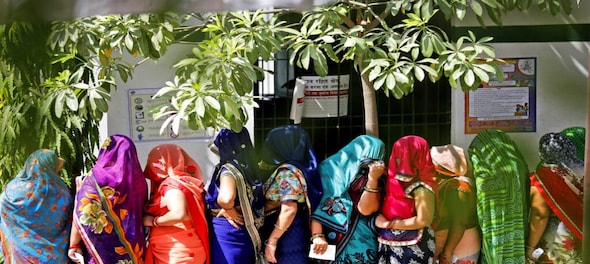
This month, with Panchayat elections being held in Rajasthan, the state government has announced that rural women will be encouraged to not wear the ghoonghat (a customary veil covering the face and head) when they go to cast their votes. They are trying to make Rajasthan ‘Ghoonghat Mukt’ (ghoonghat-free), officials said, as this custom is an “obstacle in women’s empowerment”.
The move is in contrast with previous diktats related to women’s clothing, especially in colleges around India, from Amritsar to Kerala, where female students have been told to stop wearing leggings and jeans.
On the surface, colleges banning jeans for girl students is a regressive move, while a state government urging women to remove the ghoonghat is a step towards modernity. But both have two things in common: using women’s clothing to mitigate male responsibility and denial of female agency.
When a college tells its girl students to only wear salwar-kameezes instead of ‘Western’ garments such as jeans, it gives many (false) signals: That Indian-wear is somehow ‘safer’ and is a protection against assault or attack, and that it’s the women’s fault if they are assaulted or attacked.
The opposite (false) message is being given to Rajasthani women in ghoonghats: That their traditional Indian clothing is oppressive, and that it’s the women’s responsibility to take their society and community in a more modern direction.
Both positions are anti-women.
While educated middle-classes would sympathise with a young college-going girl being told to give up her beloved jeans for a more “old-fashioned” kind of clothing, one mustn’t overlook the acute embarrassment that a rural uneducated woman would feel in taking her ghoonghat off in the presence of male members of the family or community.
Clothing has a cultural, social and political context, and when we speak of women’s emancipation, the most vital element is the women’s choice in the matter. Take the hijab. When girls take off the hijab in Iran, they are committing an act of rebellion, but so are girls deliberately wearing the hijab in America or France.
If forcing young urban women to adopt clothing worn by their mothers is unfair, then so is urging an illiterate village woman to adopt the customs of her city-bred sisters.
In either case, it is the women’s own choice that is not being considered. It is the female citizen who is forced to give up her own desires, creativity, habits or cultural preferences to conform to authoritarian rules that insist it is all for her own good.
This is undemocratic. Why must women have to follow so many rules around their clothing when men have none?
As the Rajasthan chief minister himself says, and rightly so, it is education and political empowerment that will help women shed the ghoonghat, so why does his own government think it wise to undertake a campaign that puts an excessive focus on this garment, and ‘urge’ women to give it up? Give women education and political empowerment, instead.
Indeed, the problem of crime against women and social backwardness does not lie in women’s clothing. It lies with systems of patriarchy that have endowed men with privileges, excuses and entitlements that do not allow them to see women as fellow human beings with equal rights.
Now, if any college or state government were to make rules for men, it would perhaps be more effective in ensuring safety and equality for women. How about if men were told to stay home after dark to make the streets safer for women? Wear restrictive clothing in the presence of women to stop rape? Remove their turbans to modernize society?
Sounds absurd, doesn’t it? Yet asking women to stop wearing leggings or to give up their ghoonghats is par for the course.
It’s easier to enforce rules on women than it is to take away freedom or privileges from men. This is how patriarchy works – whether disguised as a regressive college diktat or a progressive political move.
First Published: Jan 16, 2020 7:01 PM IST
Check out our in-depth Market Coverage, Business News & get real-time Stock Market Updates on CNBC-TV18. Also, Watch our channels CNBC-TV18, CNBC Awaaz and CNBC Bajar Live on-the-go!



